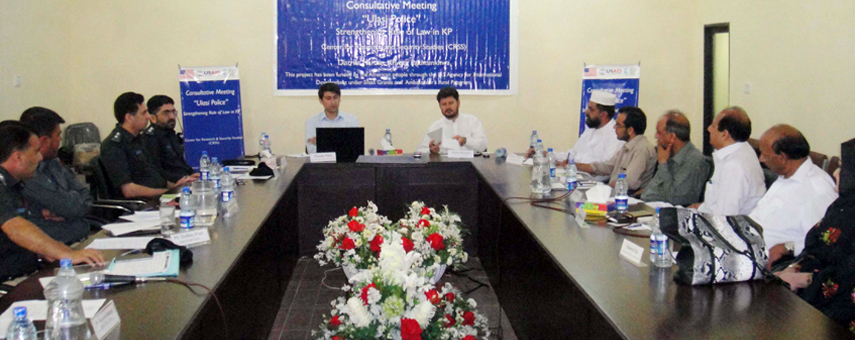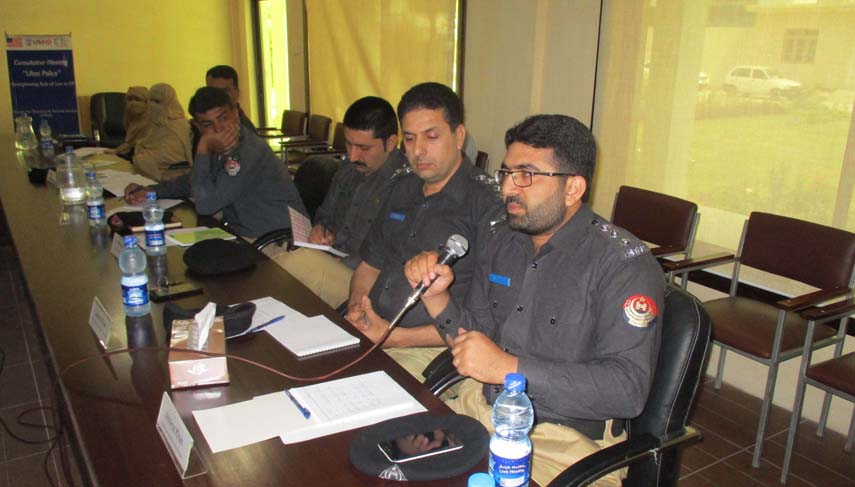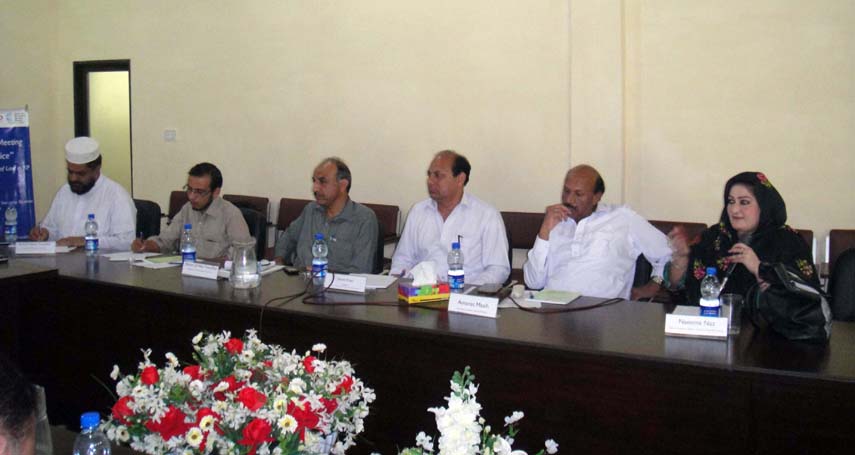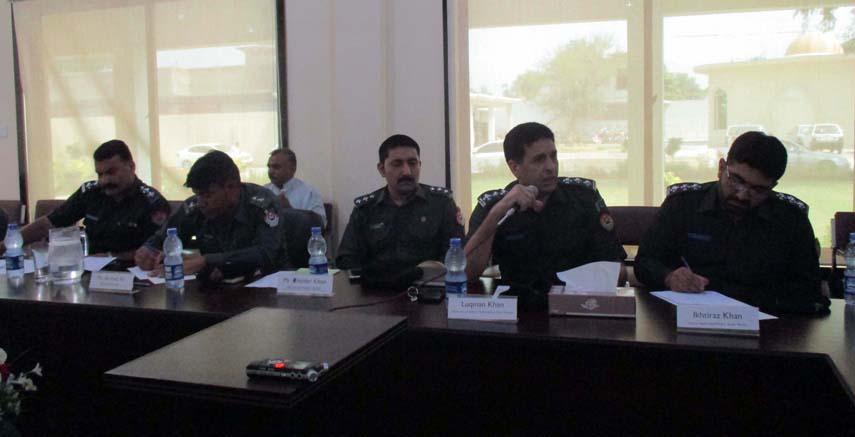The members of working group on police reforms, during a consultative meeting at DPO Office, Mardan said that the police today in KP had transformed massively – comparing to the police few years back – for increased transparency, accountability and public service. It is worth mentioning that KP police has got rid of the menace of corruption through reforms and vision to serve as a department oriented for public welfare. The trust public-police deficit will automatically be tackled if its root causes like corruption and unaccountability are addressed. As part of it, the hiring system has been improved where one cannot join the department through means of bribe and NTS clearance is mandatory is this regard.
The meeting was a part of the project “Ulasi Police”, which is an awareness and advocacy campaign undertaken by the Center for Research and Security Studies (CRSS) – as part of USAID Small Grants and Ambassadors’ Fund Program – to strengthen the rule of law in KP province by promoting and disseminating the significant police reforms aimed at incorporating local communities’ policing needs and international human rights standards. The endeavor aims to tackle the trust deficit between the public and police, help KP police become an accountable and community-focused police force.
They said that several initiatives as part of Police reforms had immensely benefitted the public, especially the Dispute Resolution Councils, Police Assistance Lines and Police Access services, but these changes need to be propagated by the media to inform and aware the public on means of access.
It is enormously important to improve the public relations skills of the police officials, especially at the lower level. Albeit, given the importance of polices’ dealing with public for addressing the trust deficit, several efforts have been undertaken and work is in progress but further behavioral improvements are required. One of the outcomes of KP police reforms is the improved public confidence and trust in police as most of these structural changes are aimed at benefitting the commoners.
Speaking about the issues of ‘Thana Culture’, the members of group from police side said that changes brought about in the KP police are not cosmetic, the citizens are welcomed in the police stations in a friendly atmosphere, with dedicated women desks in model police stations. This also helps addressing the perception that women are not respected in the police stations. Talking about their training needs, the members said that there was a dire need to ensure technical training standards adding the subjects of criminology and psychology.
The members concluded that the complaint redressal mechanism has significantly evolved. However, to further develop public-police linkages, proper and sustained implementation of policies and reforms is crucial.
The working group members of police included:
Mr. Ikhtiraz Khan, Deputy Superintendent of Police (DSP), Headquarters, Mardan, Mr. Haider Khan, DSP, Sheikh Melton, Mardan, Mr. Luqman Khan, Station House Officer (SHO), Police Station Toru, Mardan, Mr. Arshad Ali, SHO Cantt. PS, Mardan, Mr. Shafiq Khan, Inspector Legal Mardan, Ms. Sara Zeb, Lady Constable Mardan, Ms. Kalsoom Shahzadi, Lady Constable, Mardan.
The participating members of community said that police should be aware of the criticality of linkages with public and thus should organize community meetings regularly including males and females. The police should be equipped with necessary wherewithal to deal with the challenges of peace and security. The community should also realize their roles and responsibilities to work for the societal peace; working in collaboration with police. The perks and emoluments of the police should also be revisited given their long duty hours and sacrifices.
The working group members from the community included:
Mr. Arshad Manan, Advocate and DRC Member, Ms. Naeema Naz, District Councilor, Mr, Shams-ul-Haq, Broadcaster, Mr. Saeed Khan, Advocate, Amanat Masih, District Councilor (Minorities), Mr. Junaid Yousafzai, Journalist.




